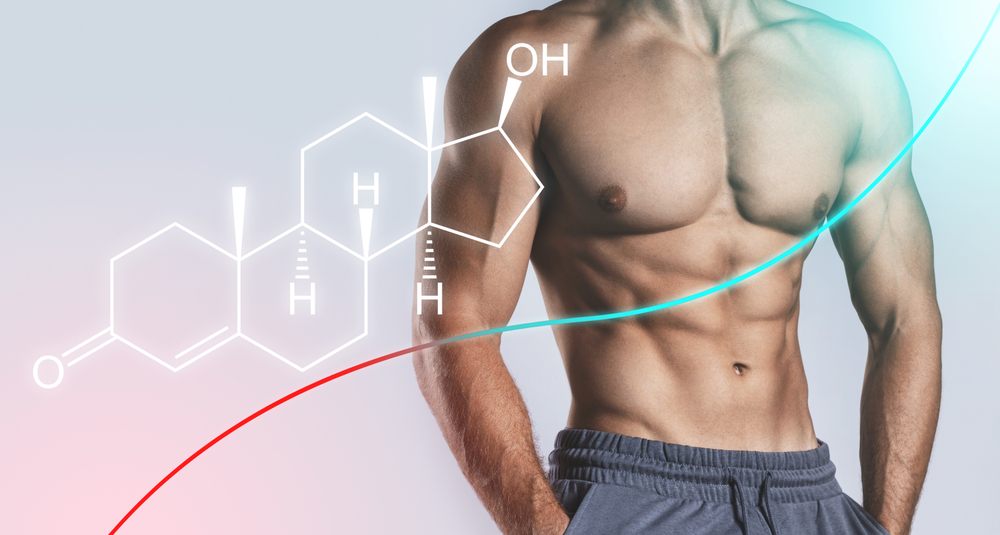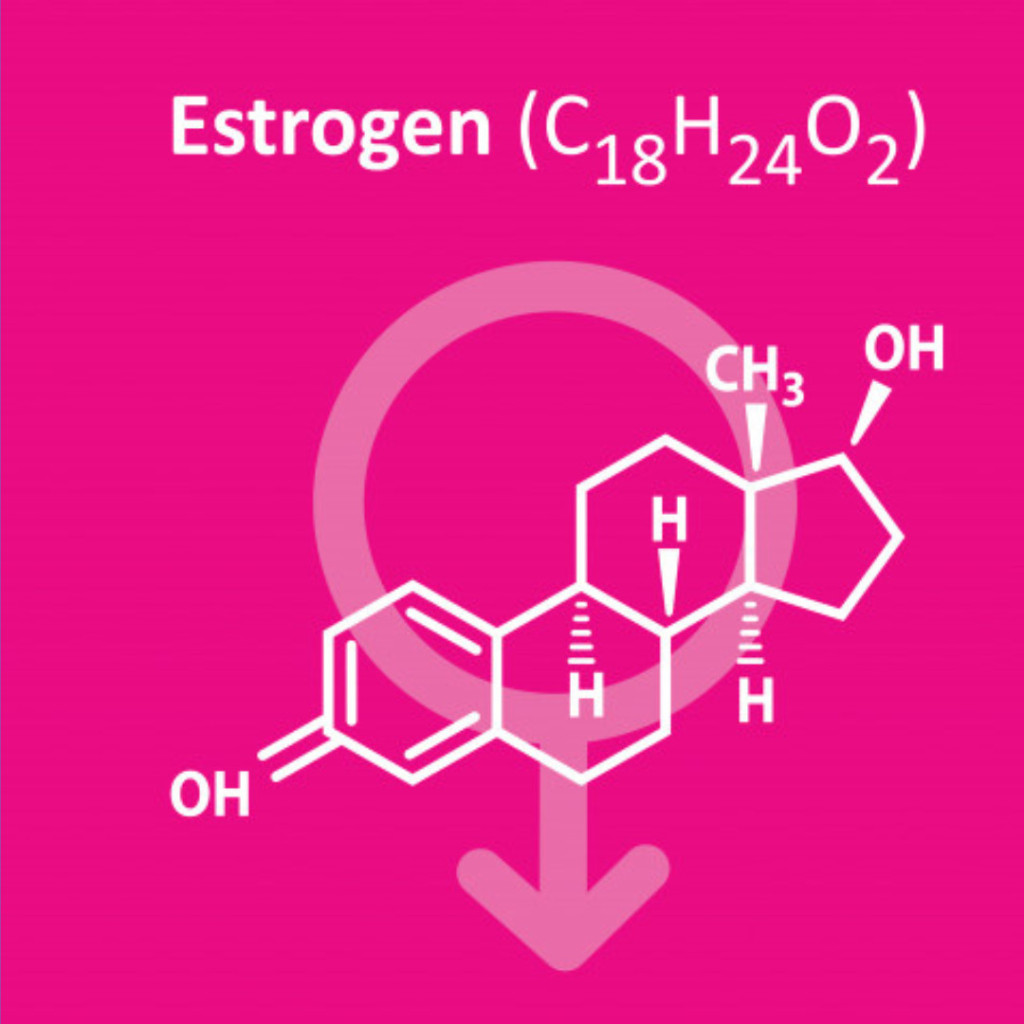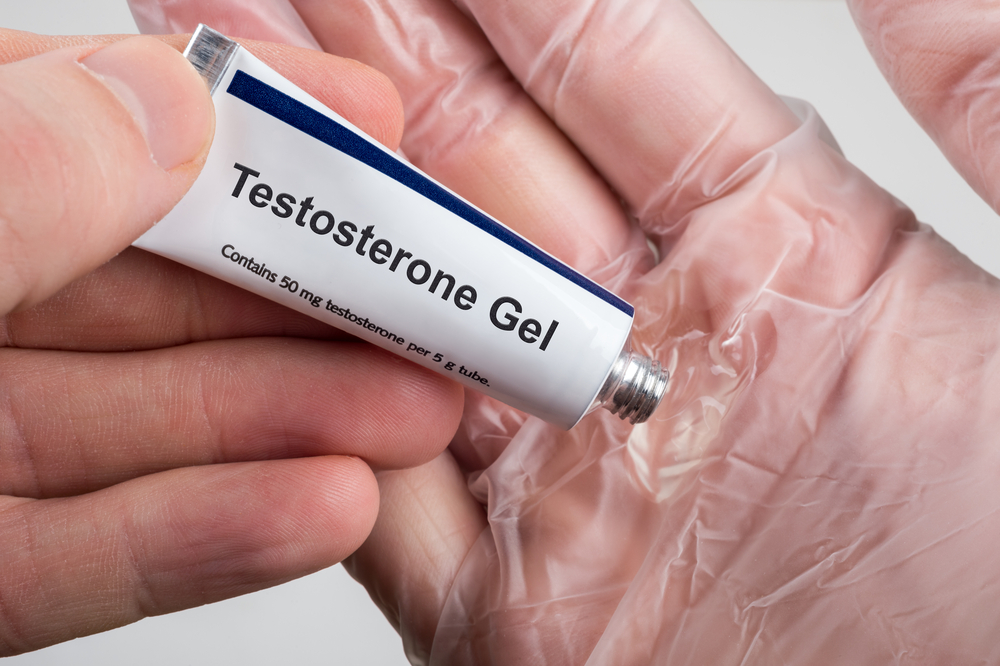Table of Contents (click to expand)
Many middle-aged men experience hormonal changes as they age. Some examples of these could include lowered testosterone levels, elevated estrogen and higher concentrations of cortisol. These hormonal changes could be accompanied by mood changes, decreased energy and lower sex drive, leading to irritable male syndrome.
Every human goes through changes as they age.
One such change experienced by men is in their sex hormones, mainly their testosterone levels. This can lead to a condition known as hypogonadism. Currently, approximately 2.4 million 40–69-year-old men in the USA suffer from this condition.
Hypogonadism is also known by other names, including andropause and Irritable Male Syndrome (IMS).
Andropause is characterized by a slew of symptoms; some are physiological, such as erectile dysfunction and reduced libido, while others are mental, such as irritability (hence the name IMS), depression, and difficulty sleeping and concentrating.

Now, while andropause sounds like menopause, and happens to some men during a similar time of life as women go through menopause, the conditions are very different.
Menopause occurs 12 months after a female’s last period (amenorrhea). This causes a significant decline in the hormones estrogen and progesterone. Andropause, on the other hand, occurs in men as they age due to reduced testosterone.
More importantly, menopause affects all females and leads to a loss of fertility. Andropause occurs only in some males, and does not necessarily lead to a loss of fertility.
In fact, only 20% of adult men aged 65 or older have testosterone levels below the normal range for young men. Finally, unlike menopausal symptoms, signs of andropause are mild and difficult to distinguish from normal signs of aging.
Nonetheless, andropause can affect relationships and make life more tumultuous for some men. It is important to understand the condition so that we may identify it and manage the symptoms effectively
What leads to andropause or IMS?
Testosterone
As mentioned earlier, andropause is linked to the sex hormone testosterone.
Testosterone is a hormone produced by the testes and is responsible for many of the bodily changes linked to sex and reproduction. It is leads to the testes descending out of the stomach area into the scrotum during fetal development, to the production of sperm, and all the other other “masculine” characteristics such as facial hair, a deep voice and muscles.
The levels of the hormone aren’t constant throughout a man’s life. As men reach their forties, testosterone levels tend to drop. The drop (around 1% annually) in testosterone is associated with the onset of IMS symptoms, including a drop in libido and weight gain.

Besides aging, other factors like high stress, obesity, alcohol or drug abuse, medication and illness can affect testosterone levels.
In one study, researchers found that males between the ages of 39-70 who were either obese, on certain prescription pills, or suffering from a chronic condition had a 10% lower testosterone level in each age category. This was in contrast to healthy males belonging to those same age groups.
One way in which obesity may lead to andropause is through the hormone aromatase. Found abundantly in fat cells, it converts testosterone to estrogen. An obese individual with more aromatase (as a consequence of the large number of fat cells) may end up with more estrogen and low testosterone levels.
Higher-than-normal levels of estrogen—which can be caused by factors other than obesity— can affect a man’s sex drive, capacity to produce sperm, and erectile activity. While too little estrogen is tied to a low sex drive, high levels of it are linked to andropause.

Also Read: Why Are Old People So Short?
What are the treatment options?
IMS is treatable, either through a combination of medications or changes in lifestyle.
When experiencing IMS, it is important to consult a physician to understand whether it is being caused by a physical condition or a hormonal imbalance.
Testosterone Replacement Therapy (TRT)
Testosterone replacement therapy is one of the most common treatment options for IMS. It involves prescribing the patient with a synthetic form of testosterone, via an injection or gel, to restore normal levels of the hormone. Under appropriate guidance, TRT can improve mood, energy levels and sex drive, as well as limit weight gain.
Although the therapy is generally considered safe and effective, it can sometimes lead to infertility issues. There are other alternatives, such as clomiphene citrate, or Clomid.

Diet and Exercise
Studies have shown that men who engage in regular exercise, especially resistance training, tend to have higher levels of testosterone. Hence, hitting the gym regularly may help manage IMS symptoms by counteracting the testosterone deficiencies associated with aging.
In addition to exercise, having a healthy balanced diet with adequate quantities of protein, carbohydrates, and fats also help maintain testosterone production, steering men away from the crippling symptoms of IMS.
Sleep and Stress Management
In addition to diet and exercise, IMS symptoms can also be effectively managed by ensuring adequate sleep (anywhere between 7 and 10 hours) and reducing stress.
When one stays up late for a long time, glucose stores in the body get depleted. This impacts the activity of the pituitary gland, thus affecting FSH release. Without adequate FSH, testosterone production is impaired, increasing vulnerability to IMS symptoms. Sleeping adequately helps replenish glucose, restore normal pituitary gland activity and increase testosterone production. Besides sleep, stress management techniques like meditation, yoga, mindfulness and other forms of relaxation also work to counter IMS by lowering cortisol levels.
Also Read: Why Can’t Some Men Grow Beards?
Conclusion
Now you know the reason behind your husband’s crankiness. Decreased production of testosterone, elevated levels of estrogen and heightened cortisol could all explain the phenomena of the “grumpy old man”. Fortunately, physician-monitored hormone therapy, proper diet, and sound sleep can all help your husband, brother, father or whoever else may be experiencing the frustrating symptoms associated with IMS.
How well do you understand the article above!

References (click to expand)
- Jauch-Chara, K., Schmid, S. M., Hallschmid, M., Oltmanns, K. M., & Schultes, B. (2013, January 10). Pituitary-Gonadal and Pituitary–Thyroid Axis Hormone Concentrations before and during a Hypoglycemic Clamp after Sleep Deprivation in Healthy Men. (T. Deschner, Ed.), PLoS ONE. Public Library of Science (PLoS).
- Whittaker, J., & Harris, M. (2022, March 7). Low-carbohydrate diets and men's cortisol and testosterone: Systematic review and meta-analysis. Nutrition and Health. SAGE Publications.
- Hackett, G. (2015, December 9). An update on the role of testosterone replacement therapy in the management of hypogonadism. Therapeutic Advances in Urology. SAGE Publications.
- Guay, A. T., Jacobson, J., Perez, J. B., Hodge, M. B., & Velasquez, E. (2003, June 1). Clomiphene increases free testosterone levels in men with both secondary hypogonadism and erectile dysfunction: who does and does not benefit?. International Journal of Impotence Research. Springer Science and Business Media LLC.
- Male menopause: Myth or reality?.
- Martelli, M., Zingaretti, L., Salvio, G., Bracci, M., & Santarelli, L. (2021, September 25). Influence of Work on Andropause and Menopause: A Systematic Review. International Journal of Environmental Research and Public Health. MDPI AG.
- Zitzmann, M., & Nieschlag, E. (2001, March 1). Testosterone levels in healthy men and the relation to behavioural and physical characteristics: facts and constructs. European Journal of Endocrinology. Oxford University Press (OUP).
- Carnahan, R. M., & Perry, P. J. (2004). Depression in Aging Men. Drugs & Aging. Springer Science and Business Media LLC.
- Araujo, A. B., & Wittert, G. A. (2011, April). Endocrinology of the aging male. Best Practice & Research Clinical Endocrinology & Metabolism. Elsevier BV.
- Shoskes, J. J., Wilson, M. K., & Spinner, M. L. (2016, December). Pharmacology of testosterone replacement therapy preparations. Translational Andrology and Urology. AME Publishing Company.
- Estrogen: Hormone, Function, Levels & Imbalances. Cleveland Clinic
